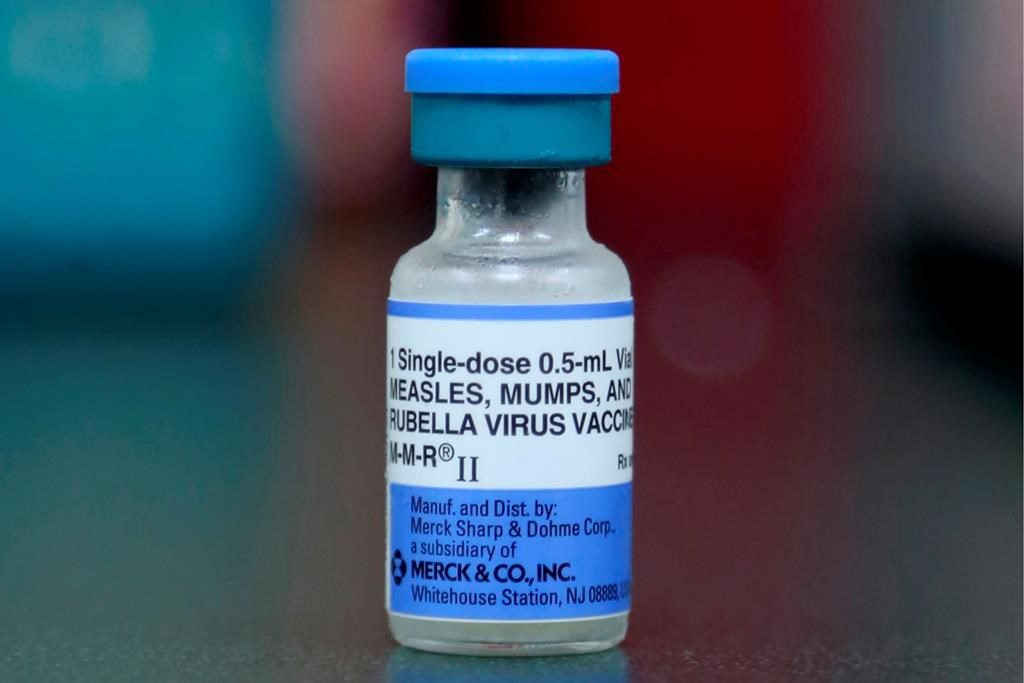The Public Health Agency of Canada is strongly advising everyone in Canada to check that they’re fully immunized against measles, especially before travelling
Amid a global rise in measles, the agency says it’s concerned the upcoming March break travel season could lead to more cases of the highly contagious disease coming into this country.
To be fully protected, both adults and children need to have received two doses of measles vaccine.
The first dose of measles, mumps and rubella vaccine is usually given to babies at 12 to 15 months and then again before the child starts school.
The Canadian Immunization Guide recommends that adults who don’t know whether or not they received two shots get a booster, especially if they’re travelling.
It also recommends that adults born before 1970 who don’t know if they ever had measles get a dose of vaccine.
If parents are travelling with infants younger than 12 months old, the baby should get a dose of measles vaccine if they are at least six months of age.
Dr. Shelly Bolotin, director of the Centre for Vaccine Preventable Diseases at the University of Toronto says there is no harm in getting an extra dose of measles, mumps and rubella vaccine.
Measles was declared eliminated in Canada in 1998, meaning any outbreaks since then have started with someone who became infected in another country.
Recently, measles cases have been rising in other countries, including the United Kingdom.
“Because there’s an increase in cases outside of Canada, then it’s understandable that we’re getting an increase in importations (of measles) as well,” Bolotin said.
“What we need to make sure that we are doing is that our population is adequately protected so that when cases come in, they don’t spread into large outbreaks (here).”
The Public Health Agency is aware of six cases of measles so far in Canada in 2024, the agency said in an emailed statement Thursday.
“Measles can cause pneumonia as well as severe and permanent complications including deafness and brain damage resulting from inflammation of the brain (encephalitis),” the statement said.
“Measles can be a fatal infection. Children less than five years of age, adults older than 20 years of age, pregnant people and people who are immunocompromised are at higher risk for complications from measles.”
This report by The Canadian Press was first published Feb. 23, 2024.
Canadian Press health coverage receives support through a partnership with the Canadian Medical Association. CP is solely responsible for this content.
Nicole Ireland, The Canadian Press





